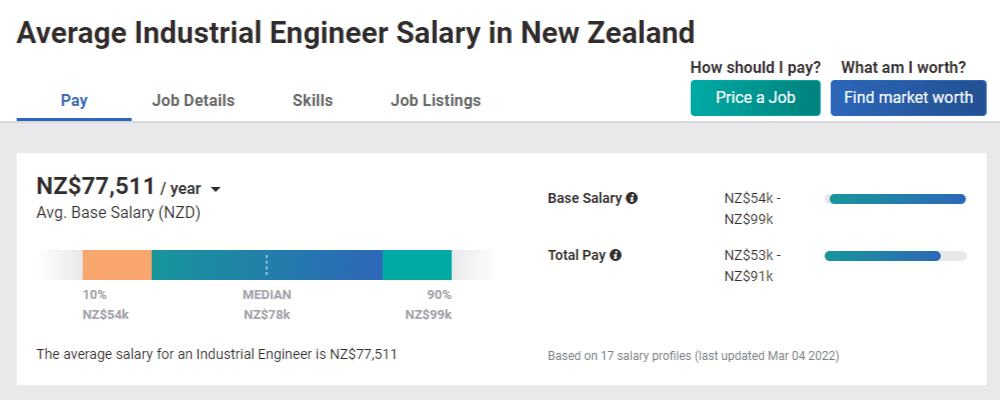
Industrial engineers are responsible for optimizing production processes and product quality through the coordination of people, data and machines. Their duties include analyzing production schedules, engineering specifications and production flows to determine the most effective production methods. They also work with customers to develop project plans. An industrial engineer might have a day that includes a variety tasks such as analysis or developing production schedules.
Industrial engineering jobs
You will need a master's and doctoral degree to be able to pursue a career in industrial engineers. You can also take free online courses to learn more about the field. Courses on edX, Coursera, and FutureLearn are available for students of all knowledge levels and can lead to college credit. Fellowships are available for industrial engineers. Most universities maintain graduate student fellowship programs, and you can also find fellowships through the American Society for Engineering Education (ASEE).

Industrial engineers typically need a four-year degree, but some programs are designed for high school graduates as well. A degree can open doors to opportunities in virtually every industry. Many industrial engineers work in an office setting while others are in a manufacturing environment.
Industrial engineers have specific job duties
A variety of tasks are performed by an Industrial Engineer. They can help a company achieve its goals through the creation of efficient manufacturing processes. An Industrial Engineer can design new machines and systems as well as evaluate existing manufacturing processes to plan improvements. For the development and implementation of new processes, an industrial engineer uses advanced research and analytical skills. A manufacturing engineer also needs to have a close attention to detail and excellent leadership skills. He or she must be able to analyze manufacturing processes, establish quality standards, and manage production schedules.
An industrial engineer's job entails assessing employees and their equipment, developing new processes and reducing costs. An Industrial Engineer also helps establish work measurement systems and develop labor utilization standards. Additionally, he or she may be involved in the development of budgets and tracking metrics. Those who choose to work in this field should be physically fit, as they will likely have to stand for extended periods of time.
Educational requirements for industrial engineers
An industrial engineer's education is crucial, whether you are looking to improve how businesses run or create processes that increase efficiency. For industrial engineers to succeed in their careers, they must have strong communication skills and a solid mathematical background. They need to be able solve problems and analyze them. In addition, they need to be good at problem-solving, as they often deal with multiple issues at once.

While industrial engineers can enter the workforce with a bachelor's degree, they may find that employers prefer to hire those with advanced degrees. In addition to improving their earning potential, graduate degrees in industrial engineering open up opportunities for post-graduate study or research. Students can earn an MS in industrial engineering online from Arizona State University, where they'll learn about the complex workings of large organizations. The university's faculty includes highly-qualified professionals, many of whom have extensive experience. It has an excellent reputation for teaching.
FAQ
What does a Chemical Engineer do for a living?
Chemical engineers combine science, math, engineering, technology, business skills, and science to create chemical processes, products and equipment.
Chemical engineers are able to specialize in many areas, including pharmaceuticals and food processing.
They work closely together with scientists and other researchers to solve technical difficulties.
What is a Mechanical Engineer?
A mechanical engineer is responsible for designing machines, tools, products, processes, and vehicles that are used by people.
Engineers in mechanical engineering use mathematics, science, and engineering principles for practical solutions to real-world problems.
A mechanical engineer may be involved in product development, production, maintenance, quality control, research, testing, or sales.
Are there any requirements for engineering studies?
No. You only need to get good grades in your GCSEs. However, some universities do require applicants to achieve certain levels of academic achievement before they can enroll. Cambridge University, in particular, requires applicants attain A* to C grades in Maths and English Language.
If you don't meet these requirements, you will need to take extra courses to help you prepare for university entrance exams.
Additional maths/science subjects or a language course might be required. Contact your school guidance counselors to learn more about these options.
Statistics
- Job growth outlook through 2030: 9% (snhu.edu)
- 14% of Industrial engineers design systems that combine workers, machines, and more to create a product or service to eliminate wastefulness in production processes, according to BLS efficiently. (snhu.edu)
External Links
How To
How to Use An Engineering Ruler
An engineering ruler is a tool that engineers use to measure distances. Since ancient times engineers have measured distances. Around 3000 BC, the first measurement device was invented.
While rulers still exist in modern times, their use has been greatly modified. The most commonly used ruler today is the metric ruler. These rulers are marked off in millimeters (1 mm 0.039 inches). Metric rulers are usually rectangular in shape and come in many sizes. Some rulers can also be used to measure centimeters or millimeters. For example, 1 cm equals 2.54 mm.
Today, you probably won't see any engineers using a traditional mechanical ruler. They would prefer a digital version that measures millimeters. It functions much the same as a regular digital gauge, but it has markings to correspond with different length units. Find out more information about them here.